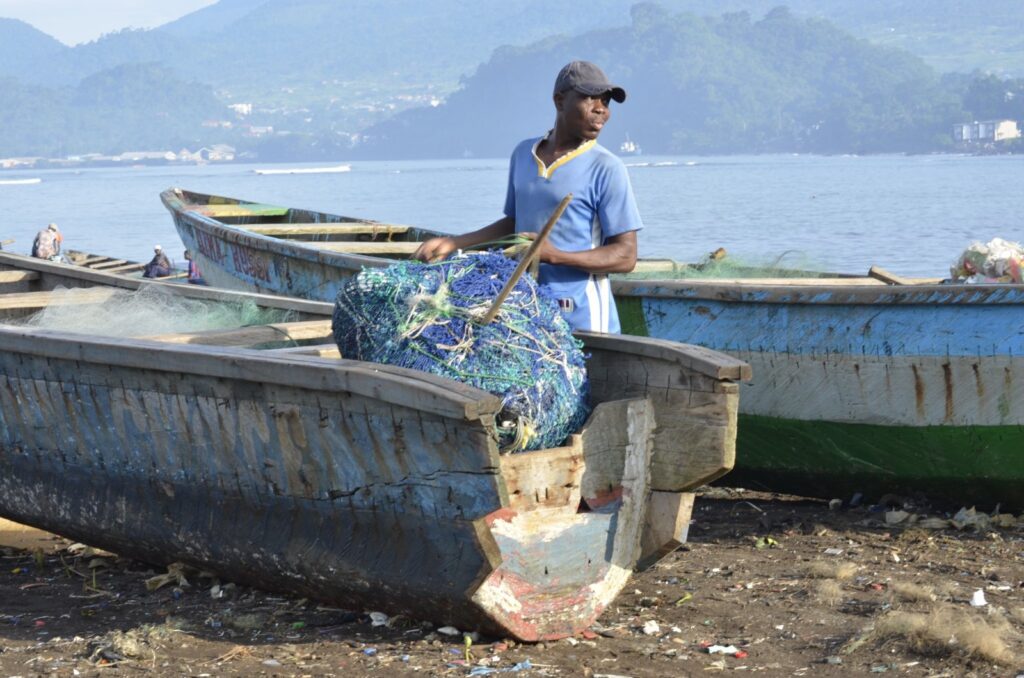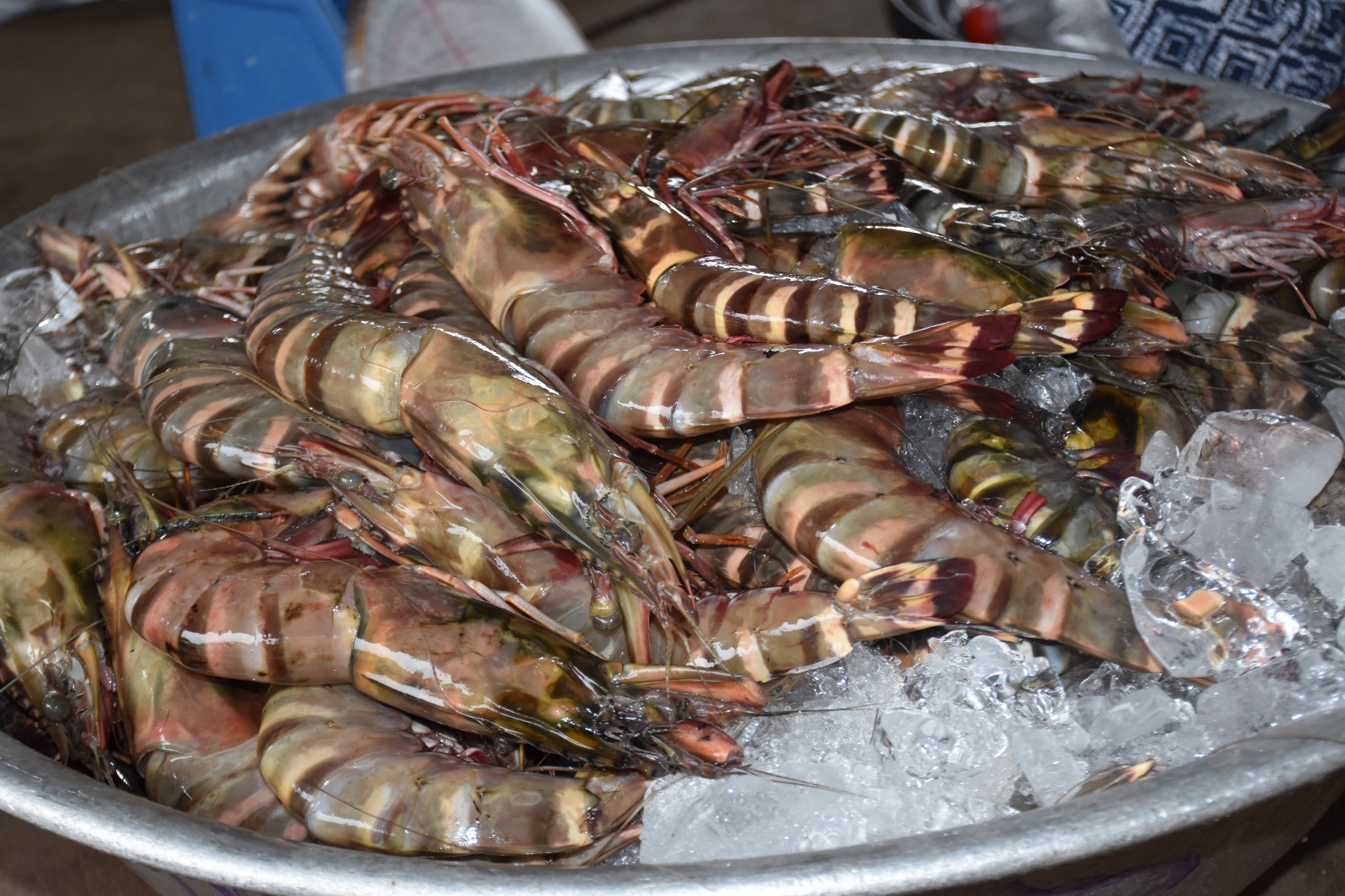By Leocadia Bongben
Artisanal fishermen, industrial enterprises, processors, and retailers are just a few of the many stakeholders, the shrimp business supports which is important to the nation’s socioeconomic framework.
In Cameroon artisanal fishermen and industrial vessels engage in prawn fishing. According to the FOA, every year ten industrial fishing businesses capture slightly more than 4,200 tonnes and artisanal catch is about 1,100 tonnes totaling 5,300 tonnes of big shrimp capture.
The large shrimp value chain in Cameroon includes 10 owners of industrial fishing vessels, over 1,000 artisanal fishermen who work in 380 crews and specialize in fishing for giant tiger prawns and Guinea shrimp, roughly 50 wholesalers, 70 retailers, and about 30 artisanal processors, going by FAO.
However, the viability of the shrimp industry is threatened by several issues, including resource disputes and operational inefficiencies caused by industrial and artisanal fishermen using the same fishing areas. Artisanal fishermen are expected to fish three nautical miles off the coast, and industrial vessels farther out into the sea according to legislation not respected by industrial fishermen. The high bycatch rate of immature shrimp is caused by present fishing practices, which exacerbates the loss of shrimp stocks.
It is against the backdrop of threats to the shrimp sector, that FAO’s FISH4ACP project helps the government identify fishing zones and update the management plan for its industrial and artisanal shrimp fisheries.
The FISH4ACP is an initiative of the Organization of African, Caribbean, and Pacific States (OACPS) to ensure the sustainability of fisheries and aquaculture value chains in Africa, the Caribbean, and the Pacific. FISH4ACP is implemented by the FAO and funded by the European Union (EU) and the Federal Ministry for Economic Cooperation and Development (BMZ).
The project is creating a new, integrated management plan for industrial and artisanal fishing to solve issues such as poor economic performance, restricted market access, and low social and environmental sustainability.
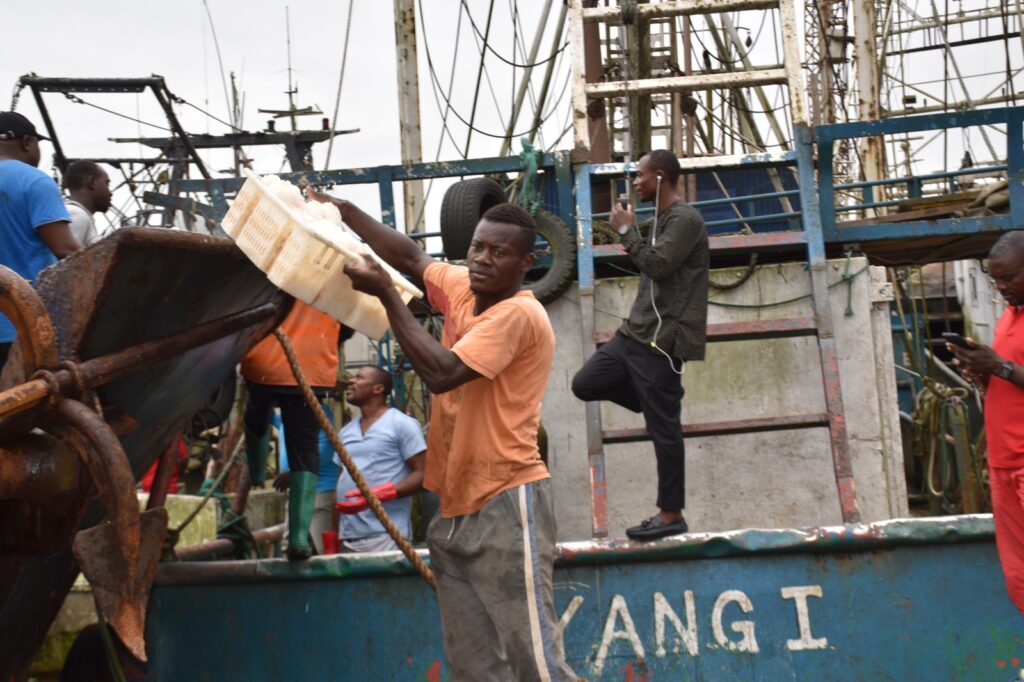
In line with the commitment to help the Cameroon government in the shrimp sector, the FISH4ACP project organized a workshop in Douala from March 11-13 aimed at mapping Cameroon’s fishing zones and revising the management plan for both industrial and artisanal shrimp fisheries. Also, to strengthen the sustainable management of fishery resources, promote responsible fishing, and support the socio-economic development of the shrimp value chain in Cameroon.
The Minister of Livestock, Fisheries, and Animal Industries, Dr. Taïga, presided over the workshop brought together national and international experts, fishing sector professionals, local community representatives, and development partners.
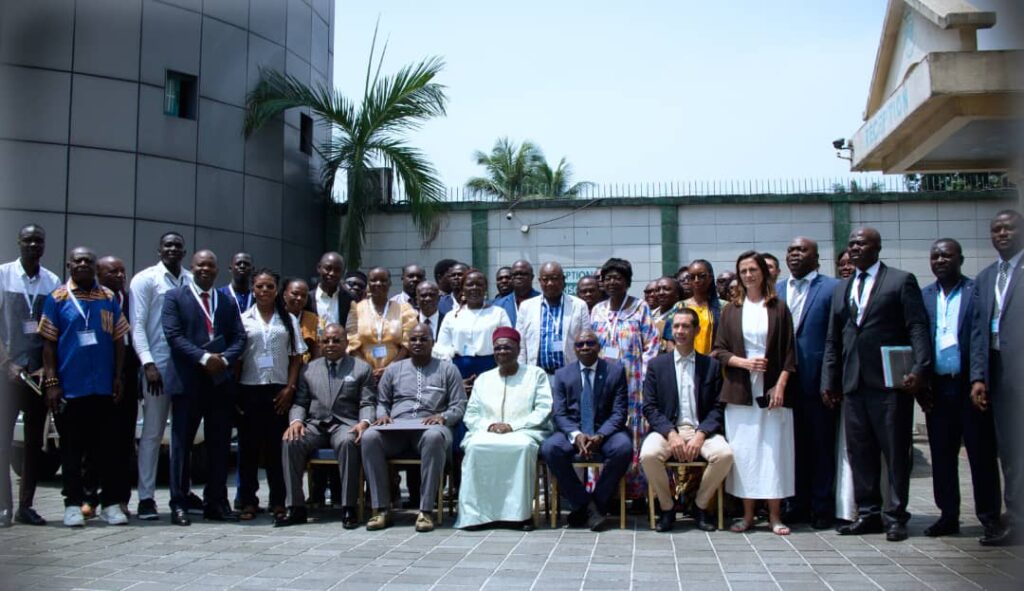
On the occasion, Dr. Taïga stressed how crucial it is for all parties involved to work to overcome present obstacles and guarantee efficient resource management. “The Ministry of Livestock, Fisheries, and Animal Industries, to achieve this, in addition to its resources, collaborates with several international partners to support the sustainable development of our fishing sector, promote modern fishing and aquaculture techniques, train fishers, and manage fishing zones,” said the minister.
The Acting FAO Representative in Cameroon affirmed the organization’s dedication to promoting efforts to enhance fisheries sustainability. He said, “…I am certain that Cameroon is moving toward modernizing fisheries governance by creating a sustainable management plan for this important value chain.
There is a need to bring on board the Ministry of Defense, Environment, Mines, and Territorial Administration for sustainable management of the shrimp sector experts recommend.
